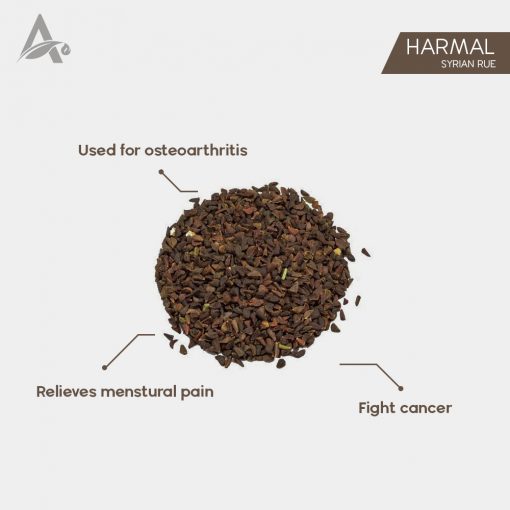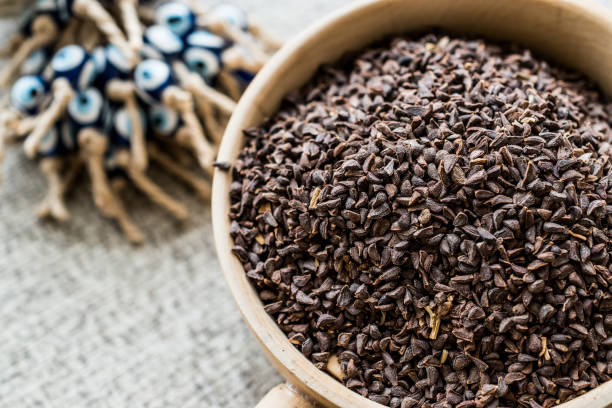
Introduction
Hermal seeds, also known as Tukhm-e-Harmal, are the seeds of the Peganum harmala plant, commonly referred to as wild rue or Syrian rue. These seeds hold a significant place in traditional medicine and cultural practices, particularly in South Asia, the Middle East, and North Africa. Their medicinal, spiritual, and ritualistic uses have been appreciated for centuries. Let’s explore their forms, benefits, and potential side effects.
Forms of Hermal Seeds
- Whole Seeds
Hermal seeds are often used in their raw or whole form for traditional remedies and rituals, such as fumigation to ward off the evil eye or negative energy. - Powdered Form
Ground hermal seeds are used in herbal mixtures and preparations, often consumed orally for their therapeutic properties. - Extracts
Hermal seeds can be processed to extract alkaloids such as harmine and harmaline, which are bioactive compounds. These extracts are used in pharmaceutical and alternative medicine. - Infusions and Decoctions
Hermal seeds can be steeped in water or boiled to create a tea-like infusion, consumed for digestive and other health benefits.
Benefits of Hermal Seeds (Tukhm-e-Harmal)

- Medicinal Properties
Hermal seeds are known for their antibacterial, antifungal, and antiviral properties. They are traditionally used to treat infections, skin disorders, and wounds. - Digestive Aid
The seeds have carminative properties, helping to relieve indigestion, bloating, and flatulence. - Pain Relief
Due to their analgesic properties, hermal seeds are used to alleviate pain, particularly in cases of arthritis or headaches. - Anti-Inflammatory Effects
Compounds in hermal seeds can reduce inflammation, making them beneficial for conditions like joint pain and swelling. - Mental Health and Nervous System
Harmaline and harmine, two active alkaloids in hermal seeds, have psychoactive effects. These compounds may help in managing stress, depression, and anxiety by modulating neurotransmitters. - Reproductive Health
Traditional medicine uses hermal seeds for improving libido and addressing certain fertility issues. - Antioxidant Properties
The seeds contain antioxidants that help neutralize free radicals, supporting overall cellular health and slowing the aging process. - Spiritual and Ritual Uses
Hermal seeds are burned to purify the environment and ward off negative energies, a practice common in many cultures.
Potential Side Effects of Hermal Seeds
Despite their numerous benefits, hermal seeds must be used cautiously due to their potent bioactive compounds. Overconsumption or improper use can lead to adverse effects.

- Toxicity
The alkaloids harmine and harmaline can be toxic in large doses, affecting the nervous system and causing symptoms like nausea, vomiting, and dizziness. - Hallucinogenic Effects
In higher doses, the psychoactive properties of the seeds may cause hallucinations or altered mental states, which can be dangerous if not monitored. - Gastrointestinal Disturbances
Overconsumption may lead to stomach upset, diarrhea, or cramps. - Pregnancy Risks
Pregnant and breastfeeding women should avoid hermal seeds as they may induce uterine contractions, increasing the risk of miscarriage or complications. - Interaction with Medications
Hermal seeds can interact with certain medications, especially antidepressants, due to their influence on serotonin levels, leading to a potentially dangerous condition called serotonin syndrome. - Allergic Reactions
Some individuals may be allergic to hermal seeds, resulting in skin irritation or respiratory discomfort when used topically or inhaled.
This Article is for Basic Information. Contact a professional doctor before using it.
HAKEEM KARAMAT ULLAH
+923090560000




